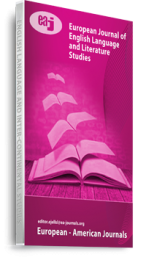This paper examines the idea of the feminine memory and its role in re/establishing a new dimension of Palestinian history in Ibtisam Barakat’s Tasting the Sky: A Palestinian Childhood (2007). The article draws on several core concepts in postcolonial studies, including diaspora narrative, trauma, and memory as well as Fatma Kassem’s study of the oral narratives of Palestinian women who witnessed the events of the 1948 War. Instead of being a mere memetic text that reflects historical incidents in literature, Tasting the Sky sheds light on the impact of traumatic experiences on both memory and the writing/narrative process. This feminine memory, focusing on traumatic experiences, seeks to construct a healing narrative that comes to terms with the traumatic past of the individual and the collective, and as a result, creates new realities. The novel demonstrates how memory and narrative can be encapsulated in a literary-political project, not merely to represent reality but to recreate it, recreating history from a countless number of scattered, traumatic, not-yet-graspable moments about a lost Home. We argue that this feminine memory is manifested through three perspectives: The domestic sphere, the female body and the female language.
Citation: Met’eb Ali Alnwairan and Hamzeh Ahmad Al-Jarrah (2022) Between Barkat and the Little Ibtisam: Feminine Memory and Thereby Narrative in Ibtisam Barakat’s Tasting the Sky: A Palestinian Childhood, European Journal of English Language and Literature Studies, Vol.10, No.6, pp.12-22,
Keywords:

